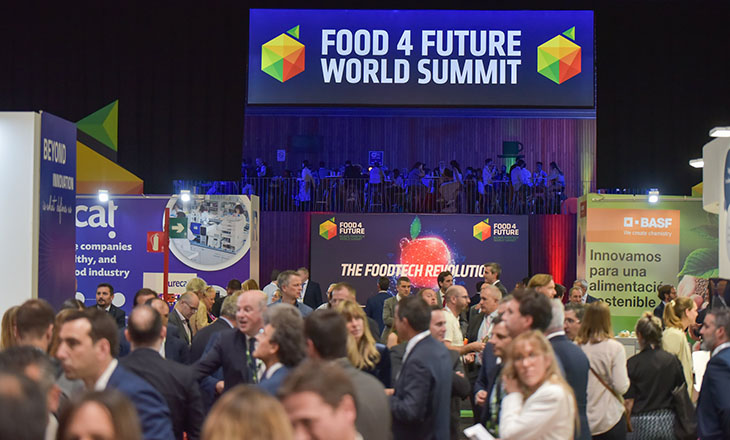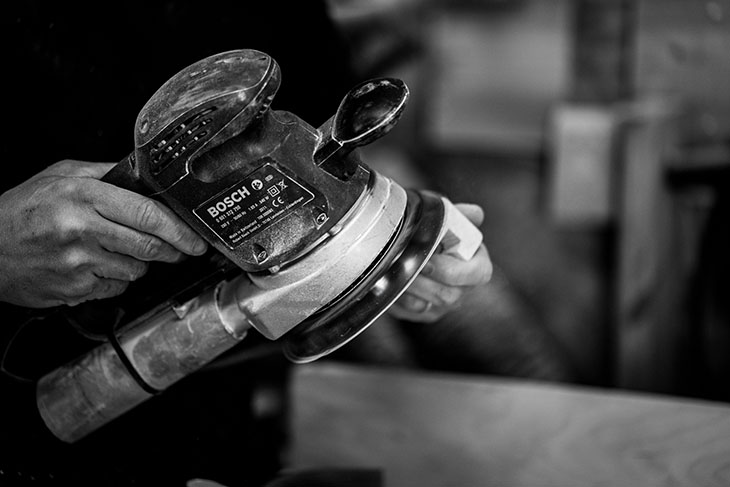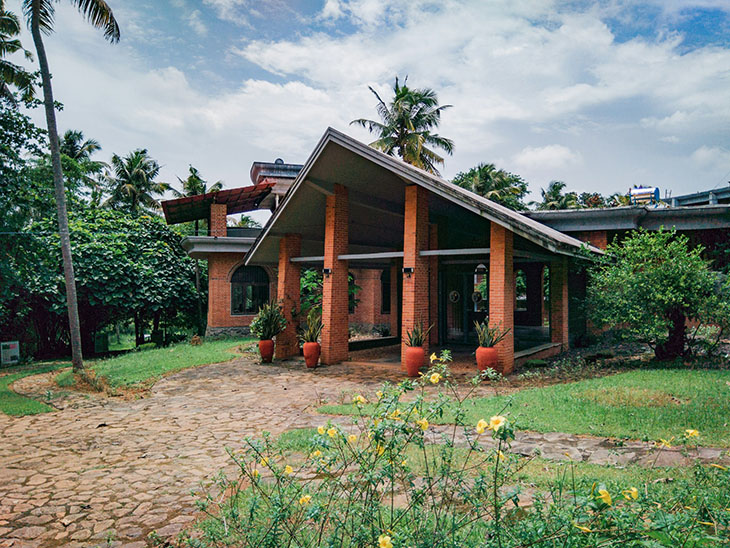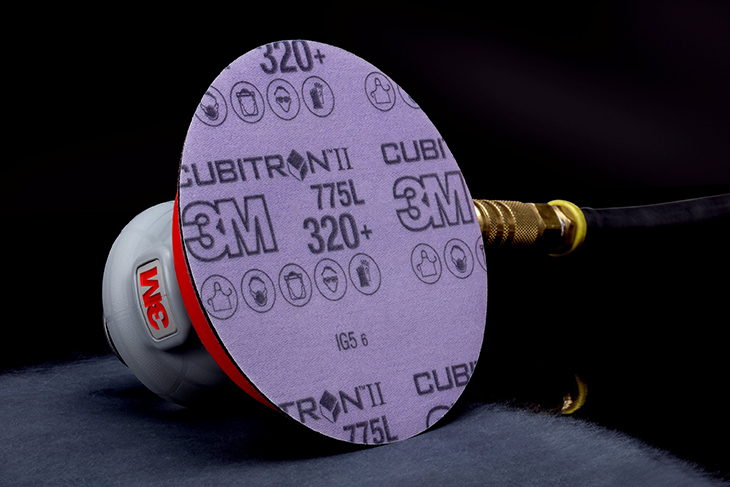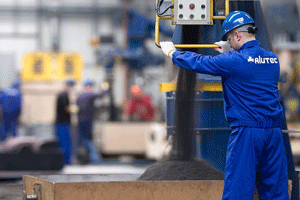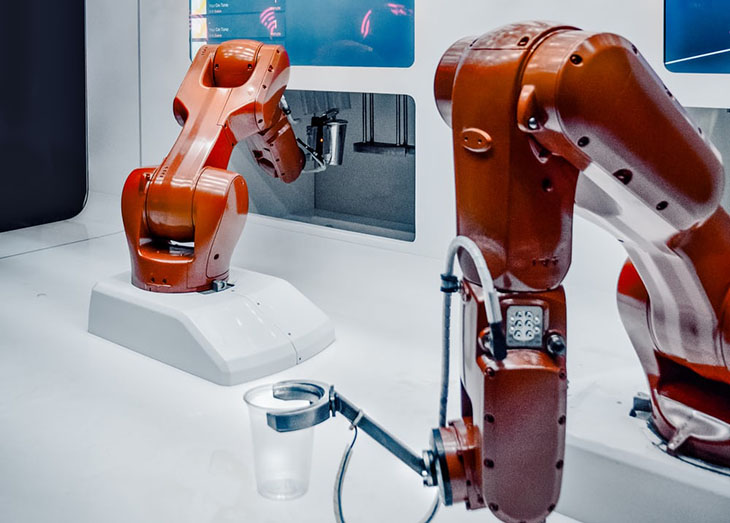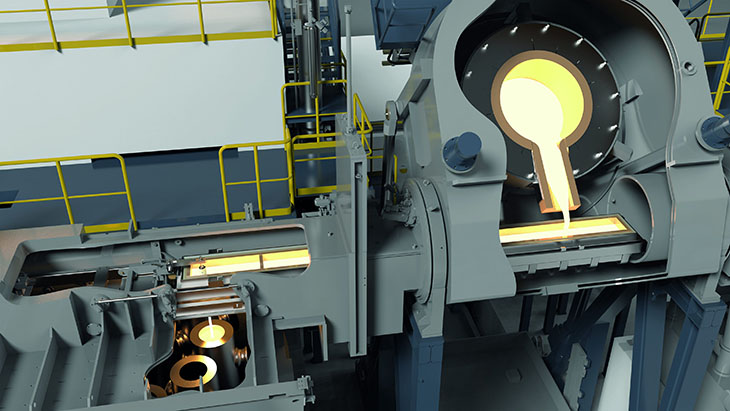Companies such as Campofrío, Glovo, AB Azucarera, Lerøy, Angulas Aguinaga or Grupo Apex will share at the Food 4 Future World Summit how they are applying technology to be more efficient in their production plants
Technological firms such as Dassault Systems, Inser Robótica, SENER, Christeyns, Azti and Tecnalia will present their latest solutions at F4F - Expo Foodtech.
F4F - Expo Foodtech, the global technology event for the food and beverage industry, returns from 16-18 May in Bilbao (Spain). Over three days, it will bring together more than 7,000 professionals and 380 experts from all over the world to analyse the challenges facing the sector and define the steps to be taken to boost sustainability, innovation and digitalisation for the food and beverage industry.
As a novelty, the Food 4 Future World Summit will host the Plant Managers Summit, a new forum for plant and production managers in the food industry. The Plant Managers Summit will analyse how Artificial Intelligence and Big Data contribute to improving workflow optimisation in food production, to reduce and improve production efficiency. In this regard, Juan Manuel López, from Dassault Systems, Elisa Caballero, from Glovo, and Idoia Olabarrieta, from AZTI, will explain how the use of these technologies improves the efficiency of the food industry using predictive maintenance, quality control, supply chain optimisation, energy optimisation and predictive demand forecasting.
On the other hand, it is also relevant the role of digital twins for better plant maintenance, which allows a significant cost reduction in production systems and an improvement in process capacity. Ignacio Valero, from LIS Data Solutions, will share how taking care of several production plants or managing processes in a preventive way using tools such as digital twins is leading to a leap in quality in production in the food sector.
Irene Ylla Monfort from Christeyns, Jesús Sanz from Campofrío, Aitor Duarte from Lerøy and Jon Martínez from Inser Robótica will explain how the use of robotics and automation makes it possible to reduce waste, improve efficiency and increase product quality in food production. Currently, robotics and automation are being used to improve precision farming practices, improve food processing and livestock management, as well as improve supply chain management practices, including inventory control, transportation and distribution.
Energy efficiency is another challenge facing the food industry. Josu Aramburu, from SENER, and Luis Pérez Almeida, from Igersoll Rand, will analyse its importance in the sector and how we can respond to this challenge through smart buildings, renewable energies, energy storage and smart grids. Agustín Pérez, from Citrusvil, and Gustavo Boillos, from Grupo Apex, will share how it is possible to reduce wastage, improve energy efficiency and reduce the carbon footprint of food production through renewable energies, and will present success stories in the integration of renewable energies (solar, wind, biogas and hydro) in food production processes.
Finally, Laura Alonso, from Tecnalia, and Garazi Inunciaga, from AB Azucarera Iberia, will explain how heating and cooling processes play a fundamental role in the food industry, and improvements in these processes can lead to significant energy savings and greater sustainability. Gradually, we are seeing improvements being made to heating and cooling processes in the food industry: insulation, heat recovery, energy-efficient refrigeration and combined heat and power systems that generate both electricity and heat from a single energy source, such as natural gas or biogas. All these contribute to reducing energy waste and improving energy efficiency in food production.









